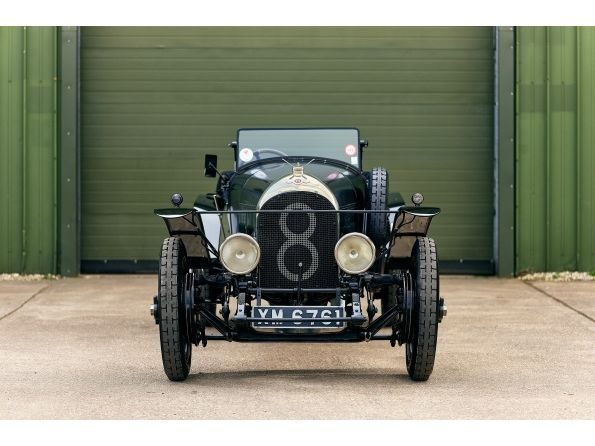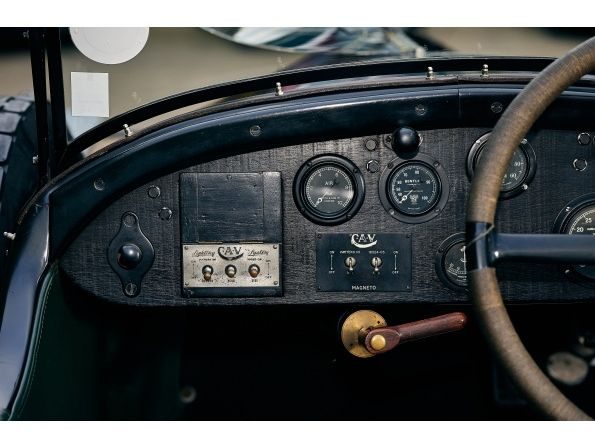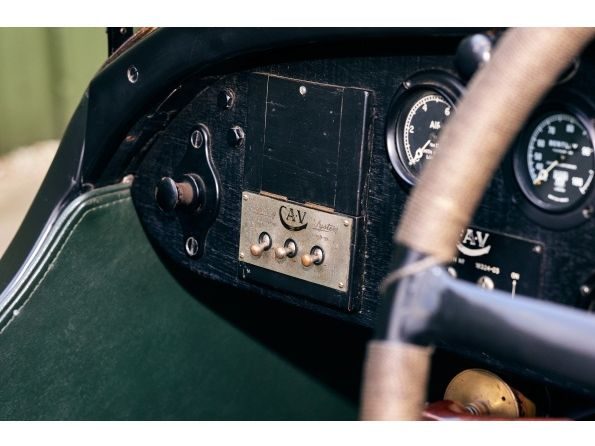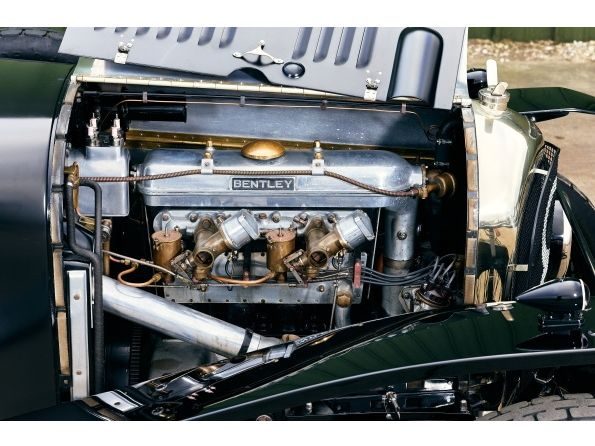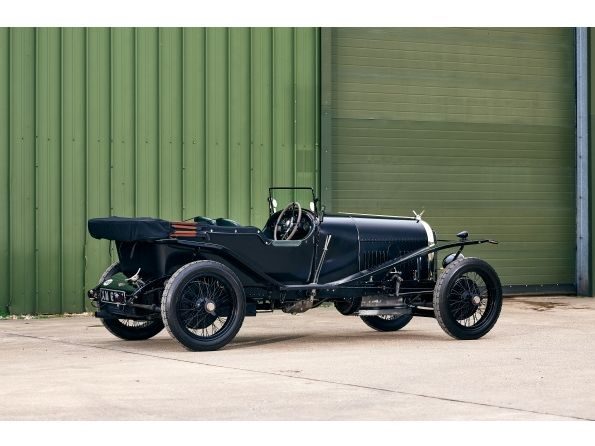Categories more
- Adventures (17)
- Arts / Collectables (15)
- Automotive (37)
- Aviation (11)
- Bath, Body, & Health (77)
- Children (6)
- Cigars / Spirits (32)
- Cuisine (16)
- Design/Architecture (22)
- Electronics (13)
- Entertainment (4)
- Event Planning (5)
- Fashion (46)
- Finance (9)
- Gifts / Misc (6)
- Home Decor (45)
- Jewelry (41)
- Pets (3)
- Philanthropy (1)
- Real Estate (16)
- Services (23)
- Sports / Golf (14)
- Vacation / Travel (60)
- Watches / Pens (15)
- Wines / Vines (24)
- Yachting / Boating (17)
Published
06/02/2023 by Kidston LtdA century ago, a Bentley 3 Litre would become the first British car and the first Bentley to compete at the gruelling Le Mans 24 Hours race in its debut year. Today, as this iconic race – a 24-hour full- throttle test of man and machine – celebrates its centenary, that very first Bentley has been sold to a British enthusiast for in excess of £3m.
Brokered by Kidston SA, a company founded by Simon Kidston – the nephew of Glen Kidston, who won the 1930 Le Mans 24 Hours at the wheel of a Bentley – this car represents the beginning of the Bentley legend, and the establishing of the tradition of ‘The Bentley Boys’. Kidston, Clement, Duff and others like Sir Tim Birkin, Dr Dudley Benjafield or one-time Bentley Chairman Woolf Barnato would become known as The Bentley Boys for their hard-charging racing lifestyle. As company founder W.O Bentley said of this group’s antics: “The public liked to imagine them living in Mayfair flats. Drinking Champagne in nightclubs, playing the horses and the Stock Exchange, and beating furiously around the racing tracks at the weekend. Of several of them, this was not such an inaccurate picture.”
This car, Chassis 141, was entered and driven by Canadian WW1 veteran, adventurer and Bentley dealer John Duff at the Double 12 Hour Record at Brooklands (24-hour racing was banned so locals could sleep), covering 2,082 miles at 86.79mph and setting 38 international records. He then asked W.O Bentley to prepare his dependable car for a new 24-hour race to be held at a place in France called Le Mans. Although Bentley thought it mad, he agreed and lent factory test driver Frank Clement to co-drive. After 24 hours at the wheel – during which they set the lap record of 66.69mph, in a car with rear brakes only – they finished joint 4th, despite having run out of fuel due to stones puncturing the tank
Bentley and The Bentley Boys would return to Le Mans for the following year’s 24-hour race. And this time they would win. From 1927 to 1930, Bentley won the Le Mans 24 Hours four times in succession, marking one of the most dominant runs in the history of the race. And it’s all down to the pioneering achievements of Chassis 141 in convincing company founder, W.O. Bentley, that his cars were capable of not only completing a 24-hour race, but winning it.
W.O himself said that he owned a great deal to John Duff and Chassis 141. Following the Le Mans 24 Hours races in 1923 and 1924, Bentley sold 700 vehicles in two years – all of this from a young manufacturer that had only delivered its first car in 1921. It’s not an overstatement to say that the success of the Bentley brand as a whole can be traced back to these achievements.
But, in time, Chassis 141 lived a more mundane life. It was later used as a tow vehicle, and then had its rear bodywork altered into a shooting brake by the local undertaker. During the late ’40s it was used by its lady owner to transport her St. Bernard dogs to shows. And then it was forgotten, only resurfacing again in the early 1980s when the owner of the Donington Car Museum, Tom Wheatcroft, received a call from a 97-year-old lady offering him two old cars in her barn, a Bentley and a Voisin. He bought them with no idea of the Bentley’s history, and it sat as a project until a motoring journalist identified it as the long-lost first Bentley to race at Le Mans. A deal was eventually reached with Australian collector Peter Briggs, whose Brabham Formula 1 car was on loan to the Donington Museum. The Brabham stayed at Donington, and the Bentley headed to Australia to be restored and eventually become a centrepiece of Briggs’ York Motor Museum near Perth. Its return to Britain brings its history full circle.
Commenting on the transaction, Simon Kidston said:
"This week the most famous motor race in the world celebrates its 100th birthday and its pioneering early competitors remain as intriguing as ever. This Bentley isn’t just an old car, it’s a turning point in motor racing history and a cornerstone of the Bentley legend. And personally, having inherited a family passion for cars which was accelerated by my ‘Bentley Boy’ uncle, helping to bring this Bentley home feels really satisfying. It won’t be leading a quiet life: it’ll be lining up on the grid of the Le Mans 100th anniversary race for vintage cars next month. I hope its original drivers will be looking down and smiling.”















